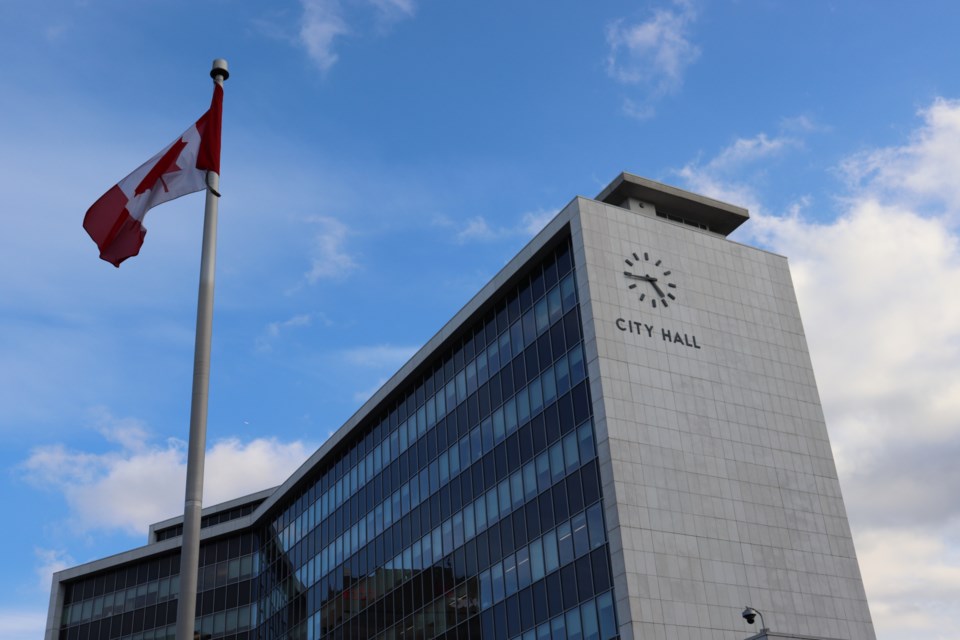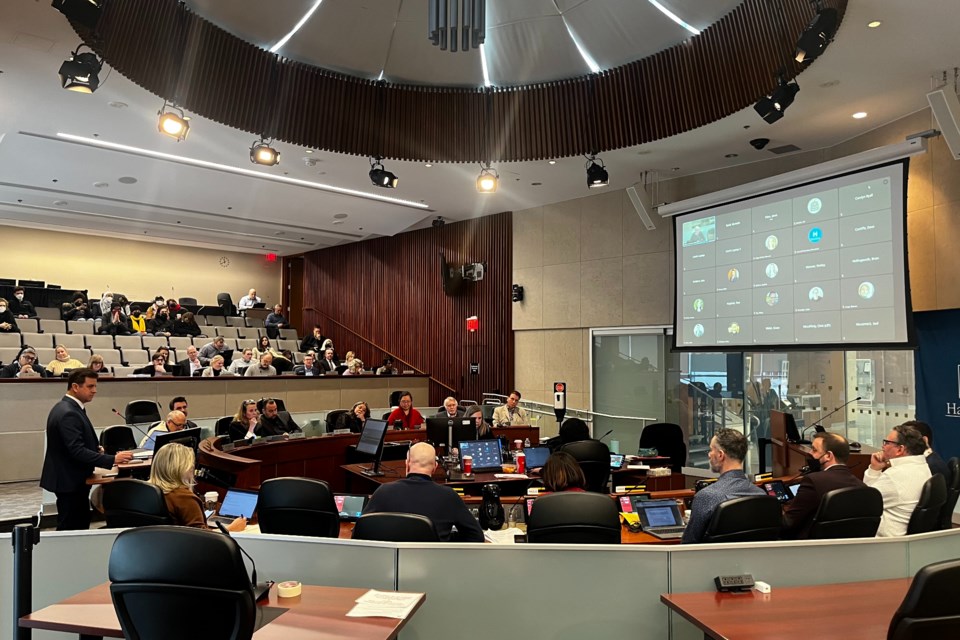Property tax rates, bike lanes, conservation, police spending, housing and homelessness were some of the things citizens and community groups brought to city council’s attention Monday, as it heads into a week of budget discussions.
Next week, council will debate the proposed 2025 tax-supported city budget, which will see a 6.3 per cent increase in property taxes.
Two of the speakers on Monday's delegation list talked about the economic future of the city, with housing projects grinding to a halt and heavy tariffs on the way from the United States.
Mike Collins-Williams of the West End Home Builders Association (WEHBA), a Hamilton-based group that represents companies in the city’s housing construction industry, said 2025 is shaping up to be a year of losses for the city’s main source of revenue. He noted the city’s residential property tax is its major source of income, with only 14 per cent of the properties paying a higher-yield industrial or commercial property tax, while 86 per cent of the tax is residential.
“The new housing market in Hamilton is in the worst shape it has been in since the 1990s,” Collins-Williams said.
From 2023 to 2024, the number of new housing starts in the city decreased by more than half. In 2023 there were 3,347 new housing projects started in the city – in 2024, only 1,481 new housing projects began.
Collins-Williams said part of this issue comes from the decline in high-rise projects, fueled by disinterested investors and changes to bank loan policies as high-rises are seen as more financially risky.
“There are going to be a lot of job losses in our sector in the next couple of years, particularly in the high rise sector,” Collins-Williams said.
He said the city doesn’t have to consider lowering industry fees, but asked council to consider not raising developer or other fees, a move that would potentially attract housing projects to the city.
Collins-Williams also requested that the city ease up on allowing new builds to prevent developments from ending up at the Ontario Land Tribunal, which is a long and expensive process for both the city and developers.
Greg Dennet, with Hamilton Chamber of Commerce, cautioned the city against its proposed 6.3 per cent property tax increase.
“While in line with provincial trends, this increase will place additional strain on Hamilton businesses and families. It is also important to note that Hamilton’s economy faces new economic challenges and risks since the budget process began,” he said.
He said the city has seen an increase in unemployment rates year-over-year and tariff changes with the Trump administration will have impacts in the coming year. Hamilton’s manufacturing sector, which employs around 28,000 jobs, he said, will be hit by the tariffs.
“These challenges demand a balanced approach,” he said.
City council will continue discussing the 2025 budget on Thursday at 9:30 a.m.

